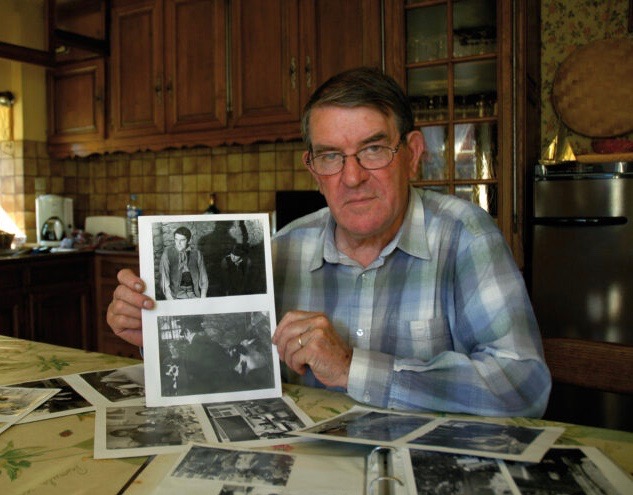Monsieur « Etre et Avoir » returns to his roots
The documentary-maker Nicolas Philibert has emerged from the lawsuits of his village-school blockbuster to find calmer waters in a work about his debut in films, he tell.
In 2003, a gentle documentary about a single-room school in rural France broke all the rules that usually consign factual film-making to a box-office backwater. It says a lot about the impact of Être et Avoir that even now, while promoting his new film Back to Normandy, the director Nicolas Philibert (pictured) inevitably finds himself talking about the one before.
The success of Être et Avoir was all the more unexpected given its unfashionably organic, fly-on-thewall approach – a contrast to the hipper, slicker personality-driven documentaries of the likes of Michael Moore, whose Bowling for Columbine was doing the rounds at the same time. But this unassuming portrait of the small crises and triumphs in a classroom captured audiences in at least 40 countries and worked equally well in all of them.
To the utter bewilderment of its director, Être et Avoir became a phenomenon, while the film’s central character, Georges Lopez, the brusque teacher who singlehandedly ran the school, became idealised in the eyes of the audience.
Peering over his mournfully drooping moustache, Philibert explains at length how the unexpected sensation turned sour for him. The success of the film, he says, brought out the worst in the people. « I believe that [the film] was a beautiful portrait of the teacher. But I discovered that there was another man behind th e one that I had thought I had seen. It was hard. »
When the film started to take off, Philibert suggested to the teacher that he take part in the promotion of the film. « He was delighted with the idea. And we offered him some money at that time. This was for his work on the promotion side, not for his participation in the film. » But caught up in the momentum of audience responses and press interest, Lopez decided that he wanted considerably more money. « That’s when we started to see lawyers appearing. »
Encouraged by his lawyer, Lopez mounted five separate court cases, each of which was dismissed by the judge. « He started by saying that he had not really given his authorisation. Or that he had agreed that the film could be made but not that it could be shown. He then started saying that he was co-author of the film. Then he claimed that by filming his lessons we owed royalties for his own intellectual property. Then he argued that he was also an actor in the film. »
Philibert adds wearily that, in addition to Lopez, the parents of the children also took him to court once. He estimates that Être et Avoir and its aftermath has taken up more than five years of his life.
So it’s perhaps not surprising that for his follow-up film Philibert has turned his camera back to a happier time in his career. At the age of 24 he took the job of first assistant director on René Allio’s 1976 film, I, Pierre Rivière, Having Slaughtered My Mother, My Sister and My Brother… This unique project was filmed in Normandy and based on a notorious local crime. Rather than use professionals, Allio cast his film from the local people in the area.
Philibert describes it as a challenging but profoundly rewarding experience. « I spent three months in the region, meeting and talking to loads of people. For me as a city person, it really was diving in. It was a world that I didn’t know, that I viewed through clichés. And they also had clichés about us, the city people, as well. »
For his documentary, Philibert returned to the region, tracked down as many of the cast members as possible and encouraged them to share their memories of the making of the film. It soon becomes clear that the experience was as life-changing for many of them as it was for Philibert himself. The film has been described as a partial self-portrait and there’s a shared intimacy between the film-maker and his subjects that lends an almost voyeuristic feel to the viewer. His aim was to record the words of these people who shared with him an intense period of collaboration but then went their separate ways. He also hoped to boost the profile of Allio, a director who is in danger of being forgotten.
With its intensely personal subject matter, its organic, meandering structure and its sudden, shocking images of animal husbandry, Back to Normandy is not likely to repeat the mainstream success of Être et Avoir . But then success is probably the last thing that Philibert would want to live through again. « Since the beginning I have made documentary films. If I had chosen to become a film-maker in order to drive a Ferrari, I would have chosen a different field of cinema. »
